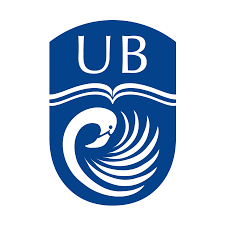Grand Bahama Post-Hurricane Dorian
A Comparison of Fresh Water in Two Primary Wellfields
DOI:
https://doi.org/10.15362/ijbs.v29i1.543Keywords:
Drinking water, Fresh water, Water, Freshwater lenses, Groundwater, Freshwater microbiology, Saltwater encroachment, Grand Bahama IslandAbstract
Freshwater lenses, a layer of fresh water that floats atop saline groundwater, are vulnerable sources of drinking water for small islands. The threats to freshwater lenses, and their recovery following catastrophic events, is not well documented. Due to storm surge and flooding during the Category 5 Hurricane Dorian in September 2019, the freshwater lenses of Grand Bahama were inundated with salt water, removing the freshwater source of drinking water for the island. This study builds on previous work to monitor the recovery of the freshwater lenses three years after the hurricane by assessing tidal lag, as well as stable isotopes in water (δ2H and δ18O), to understand the hydrologic characteristics of the FWL in Grand Bahama. Results from electrical conductivity revealed that the tidal lag, or the time it takes for the tidal effect to be observed in groundwater, was approximately 2.5 hours on average. Through stable isotope analysis of precipitation samples, we determined a local meteoric water line of δ2H = 8.2 * δ18O + 12.2, which is close to the global meteoric water line. Groundwater samples did not show evidence of significant evaporation from precipitation. These results serve as baseline data for additional monitoring and recovery efforts on Grand Bahama.
References
Avila, L. A., Stewart, S. R., Berg, R., & Hagen, A. B. (2020). National Hurricane Center tropical cyclone report: Hurricane Dorian. National Atmospheric and Oceanic Administration https://www.nhc.noaa.gov/data/tcr/AL052019_Dorian.pdf
Bahamas. Ministry of the Environment and Natural Resources. Forestry Unit. (2021). Strengthening of forests through groundwater restoration: Grant Proposal Submitted to the Bahamas Protected Areas Fund.
Bundesanstalt für Geowissenschaften und Rohstoffe. (2015). Module 5: Groundwater monitoring and information management. https://www.bgr.bund.de/EN/Themen/Wasser/Politikberatung_GW/Downloads/Module_5.pdf?__blob=publicationFile&v=5#:~:text=Monitoring%20groundwater%3A%20the%20entry%20point,of%20the%20groundwater%20resource%20itself
Cant, R. V., & Weech, P. S. (1986). A review of the factors affecting the development of Ghyben-Hertzberg lenses in The Bahamas. Journal of Hydrology, 84, 333–343. https://doi.org/10.1016/0022-1694(86)90131-9
Cerrai, D., Yang, Q., Shen, X., Koukoula, M., & Anagnostou, E. N. (2020). Brief communication: Hurricane Dorian: Automated near-real-time mapping of the “unprecedented” flooding in the Bahamas using synthetic aperture radar. Natural Hazards and Earth System Sciences, 20, 1463–1469. https://doi.org/10.5194/nhess-20-1463-2020
Chaves, H. (2021). Impact assessment and management strategies for the groundwater resources of Grand Bahama. UNESCO–Intergovernmental Hydrologic Programme.
Craig, H. (1961). Isotopic variations in meteoric waters. Science, 133, 1702-1703. https://doi.org/10.1126/science.133.3465.1702
Dansgaard, W. (1964). Stable isotopes in precipitation. Tellus, 16(4), 436–468. https://doi.org/10.111/j.2153-3590.1964.tb00181.x
Denić-Jukić, V., Lozić, A., & Jukić, D. (2020). An application of correlation and spectral analysis in hydrological study of neighboring karst springs. Water, 12(12), 3570. https://doi.org/10.3390/w12123570
Global Forest Watch. (2022). Bahamas deforestation rates & statistics. https://www.globalforestwatch.org
Jiao, J., & Post, V. (2019). Coastal hydrogeology, groundwater tidal dynamics. Cambridge University Press. https://doi.org/10.1017/9781139344142.004
John, B., & Das, S. (2020). Role of electrical conductivity on salinity and mineralization due to groundwater level fluctuations in Kolkata City. IOP Conference Series: Earth and Environmental Science, 505, 012021.
Jouzel, J., Delaygue, G., Landais, A., Masson-Demotte, V., Risi, C., & Vimeux, F. (2013). Water isotopes as tools to document oceanic sources of precipitation. Water Resources Research, 49, 7469–7486. https://doi.org/10.1002/2013WR013508
Leibundgut, C., Małoszewski, P., & Külls, C. (2009). Tracers in hydrology. Wiley. https://doi.org/10.1002/9780470747148
Livshitz, Y. (2020). Assistance to government of The Bahamas: Restoring water resources in the aftermath of Hurricane Dorian: Final report. Israel Water Authority.
Merkel, B., & Planer-Friedrich, B. (2003). Integrierte Datenauswertung Hydrogeologie. Freiberg Online Geology, 7. https://www.researchgate.net/profile/Britta-Planer-Friedrich/publication/27553830_Integrierte_Datenauswertung_Hydrogeologie/links/02bfe50f71b0d1b5dc000000/Integrierte-Datenauswertung-Hydrogeologie.pdf
National Oceanic and Atmospheric Administration. (2022). Tides & currents. https://tidesandcurrents.noaa.gov/noaatidepredictions.html?id=9710441
National Oceanic and Atmospheric Administration. (2023). Past weather at Freeport Lucaya 7.4 WNW Station, Grand Bahama. https://www.ncei.noaa.gov/access/past-weather/BF1FP000001
Nielsen, D. (1991). Practical handbook of groundwater monitoring. Lewis Publishers.
Ozaki, S., Akl, C. A., Nagino, T., & Hiroshiro, Y. (2021). Investigating effect of pumping ratio on effectiveness of barrier wells for saltwater intrusion: Lab-scale experiments and numerical modeling. Water, 13(15), 2100. https://doi.org/10.3390/w13152100
Singaraja, C., Chidambaram, S., & Jacob, N. (2018). A study on the influence of tides on the water table conditions of the shallow coastal aquifers. Applied Water Science, 8(11), 1–13. https://doi.org/10.1007/s13201-018-0654-5
Stein, S., Yechieli, Y., Shalev, E., Kasher, R., & Sivan, O. (2019). The effect of pumping saline groundwater for desalination on the fresh-saline water interface dynamics. Water Research, 156, 46–57. https://doi.org/10.1016/j.watres.2019.03.003
U.S. Army Corps of Engineers. (2004). Water resources assessment of The Bahamas. https://www.sam.usace.army.mil/ Portals/46/docs/military/engineering/docs/WRA/Bahamas/BAHAMAS1WRA.pdf
United Nations. Framework Convention on Climate Change. (2014). Climate change: The second national communication report of the Commonwealth of The Bahamas. https://unfccc.int/sites/default/files/resource/bhsnc2.pdf
Wang, T., Yang, Z., & Copping, A. (2013). A modeling study of the potential water quality impacts from in-stream tidal energy extraction. Estuaries and Coasts, 38, 173–186. https://doi.org/10.1007/s12237-013-9718-9
Welsh, K., & Bowleg, J. (2022). Interventions and solutions for water supply on small islands: The case of New Providence, The Bahamas. Frontiers in Water, 4, 983167. https://doi.org/10.3389/frwa.2022.983167
Welsh, K., & Sanchez-Murillo, R. (2020). Rainfall, groundwater, and surface water isotope data from extreme tropical cyclones (2016-2019) within the Caribbean Sea and Atlantic Ocean basins. Data in Brief, 30, 105633. https://doi.org/10.1016/j.dib.2020.105633
Welsh, K., Bowen-O'Connor, C., Stephens, M., Dokou, Z., Imig, A., Mackey, T. Moxey, A., Nikolopoulos, E., Rein, A., Turner, A., Williams, A., Al Baghdadi, L. Bowleg, J., Chaves, H. L., Davis, A., Guberman, G., Hanek, D., Klausner, S. Medlev, D. … Wilchcombe, R. (2022). Potable water and terrestrial resources on Grand Bahama post-Hurricane Dorian: Opportunities for climate resilience. International Journal of Bahamian Studies, 28, 43-66. https://doi.org/10.15362/ijbs.v28i0.467
Whitaker, F., Barbieri, T., Corlett, H., Gómez, M., Kearsey, B., Ting, K. K., & Wuersch, T. (2023). Bristol Northern North Andros project: second report for the Bahamas DEPP. University of Bristol, UK, Memorial University, Canada, CICESE, Mexico.
Xun, Z., Chuanxia, R., Yanyan, Y., Bin, F., & Yecheng, O. (2006). Tidal effects of groundwater levels in the coastal aquifers near Beihai, China. Environmental Geology, 51, 517–525. https://doi.org/10.1007/s00254-006-0348-4







